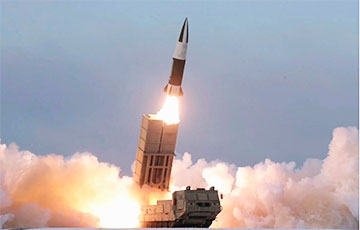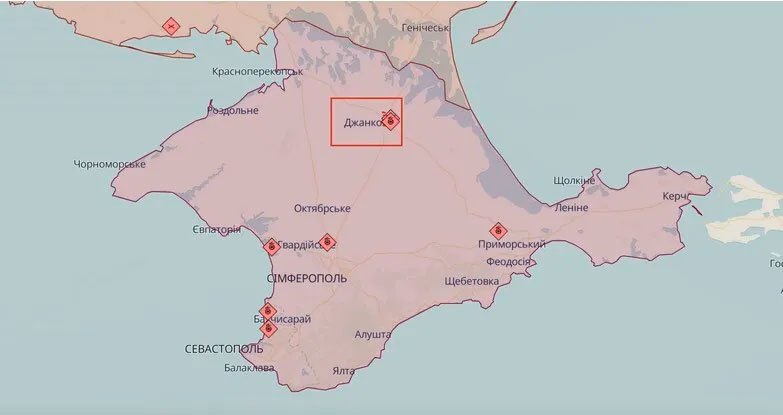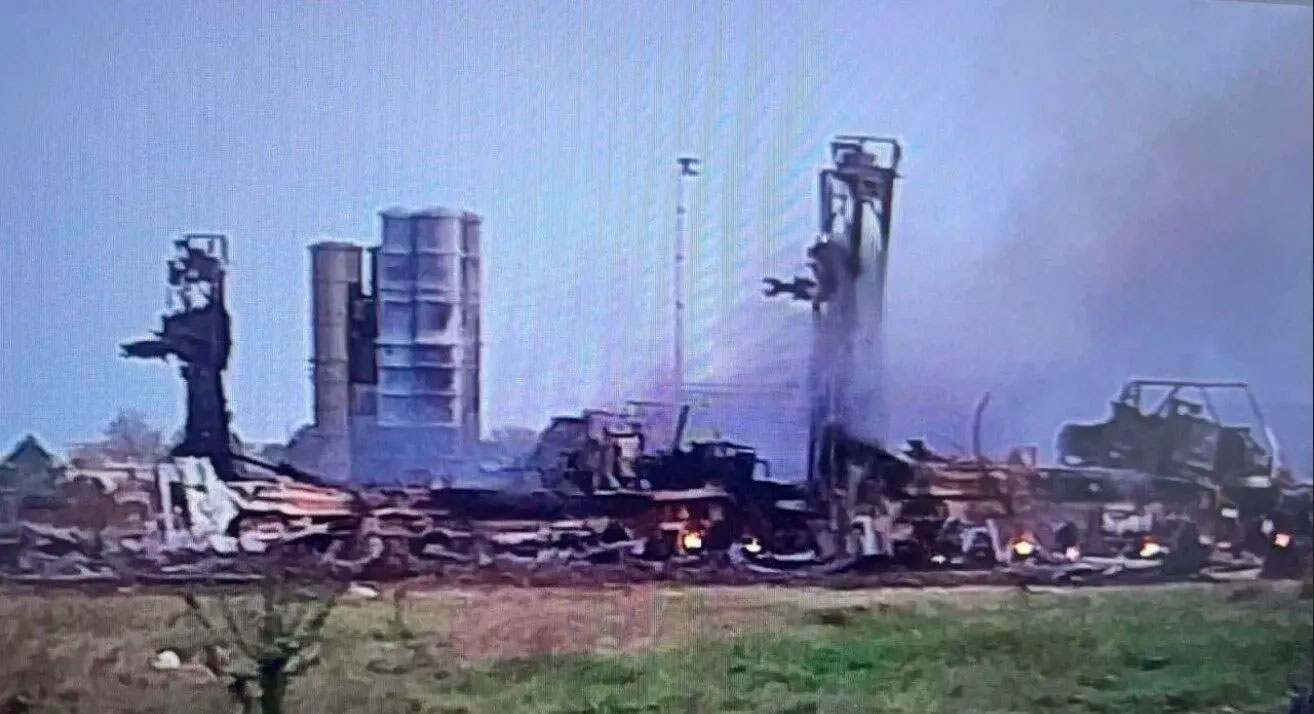Military Expert: ATACMS Missiles Will Easily Destroy All Russian Air Defence In Crimea
14- 23.04.2024, 12:55
- 24,022

What's the necessary amount?
On the night of April 17, a Russian airbase was attacked in the Dzhankoi area, where, in addition to aviation, an air defence division consisting of S-400 air defence systems was located.
The result of the strike was the destruction of four S-400 launching air defence systems, at least three radars, namely 92N2E, 91N6E, and the unique Fundament-M system. This strike immediately raised the question: how many ATACMS are needed to completely disable the Crimean air defence? Let's find out, writes Ukrainian military expert Oleksandr Kovalenko.
Attack on the airbase
After the attack on the airfield in the Dzhankoi area, Russian propaganda platforms immediately began to report that Ukraine carried out an attack with ATACMS ballistic missiles, but they were all shot down. Then messages began to appear that not all the missile... Sometime later, Russian patriots were completely covered with panic moods – in connection with the real results of the strike.

Subsequently, a video was published showing the launch of six MGM-140B Block 1A missiles, which was attributed to the attack on Dzhankoi. xBased on this, the strike potential was exactly six ballistic missiles.
In turn, on the satellite images published later at the airfield in Dzhankoi, six fire areas spaced apart by distance were clearly recorded. That is, all the missiles flew to their destination.
The effectiveness of the strike turned out to be maximum, but the question arises: how many missiles of this type may be needed in general to disable the Russian air defence in the Crimea?

What is air defence in Crimea?
Russian air defence in the temporarily occupied Crimea is represented by the following troops.
18th Anti-Aircraft Missile Regiment. Separately, it should be recalled that the 18th Anti-Aircraft Missile Regiment (military base #85388) are traitors to the Feodosia regiment, who defected to the occupiers in 2014. Currently, this regiment is deployed in three divisions at Cape Tarkhankut, in Dzhankoi and in Feodosia. Recently, the division in Dzhankoi is not combat-ready at all.
12th Anti-Aircraft Missile Regiment. And these are Evpatorian traitors who defected to the Russian occupiers in 2014. They are represented by divisions in the area of Evpatoria and Sevastopol.
3rd Radio-Technical Regiment. Radio equipment of the 3rd RTP is located at Cape Tarkhankut.
Thus, the Russian air defence is represented by two regiments with long-range S-400 air defence systems, which are of interest to us as the main means of intercepting various kinds of interesting subsonic and supersonic air objects.
How to neutralize air defence
We witnessed how effectively the division was destroyed by six ATACMS missiles in Dzhankoi. In fact, thanks to this "incident", the north of the temporarily occupied peninsula of Crimea is not covered from the penetration and flight of some medium and large-sized objects.
In the event of the destruction of the division in Feodosia, the route from the north to the southeast of Crimea or a very interesting direction is not covered in general, taking into account some illegal logistics facilities. On the other hand, partly this illegal bridge-type building is under the cover of the 1537th Anti-Aircraft Missile Regiment (Novorossiysk). But it's not even about them.
In general, the strike of six MGM-140B Block 1A missiles on the airfield near Dzhankoi disabled the entire division of the 18th Anti-Aircraft Missile Regiment. That is, this is the minimum indicator of the effective use of this component, and it should be considered as a basic one. In other words, to disable other divisions, an impact potential of six missiles or more is required.
I think you do not need to be a genius to calculate that, in general, a resource of at least 24 MGM-140B Block 1A missiles is needed to disable the long-range air defence components of the S-400 air defence system in Crimea.
But again, this is if the goal is the complete neutralization of the S-400 air defence system in Crimea.

Conclusions
Strikes on the airbase of Berdiansk and Luhansk in 2023, as well as on the Dzhankoi airfield in 2024, showed that at first glance, the MGM-140B Block 1A ballistic missile is not an unattainable object for Russian conditionally modern air defence systems.
The low interception rate of these missiles makes them a serious threat to the S-400 air defence system and the consequence may be the complete "shutdown" of Crimea from the long-range air defence component.
The effectiveness of the MGM-140B Block 1A against the S-400 air defence system has been demonstrated. It would seem that it is too little to get enough of this component from the United States to complete the work and open the airspace of Crimea for the next phase of operation.










